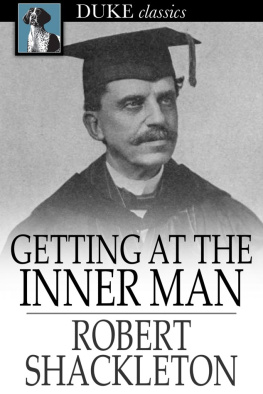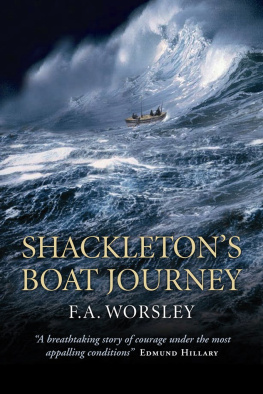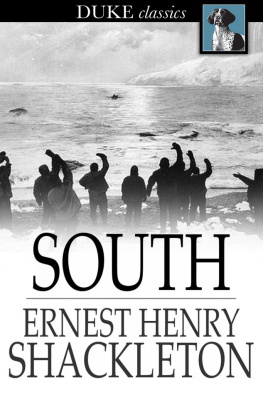Chapter I - The City Of George The Great
THE city of George the Great! And why should he not be known as George the Great! Familiarly to all Americans come such names as Napoleon the Great, Frederick the Great, Catherine the Great, Louis the Great, Peter the Great.
The leader in a republic is under a marked disadvantage, for his time is limited, his rule is for a few years only, where monarch may have many years of rule and opportunity. Louis the Fourteenth had over seventy years of kingship in which to win in history the undisputed title of ''great," but the great Washington was head of the army for only eight years and gladly gave up the post; he was President for another eight years and, again, gladly retired. His contemporary, Frederick the Great, became king when Washington was but a boy of eight and continued to rule until three years after the completion of our Revolutionary War.
Another contemporary of Washington was Peter the Great, and he ruled arbitrarily for a quarter of a century and was formally given by what was known as the Russian Senate the title of ''the Great" and remarkably, the Washington-like title of "Father of his Country."
Both Peter the Great and George Washington founded a city, a capital city, and in each case the city was named after its founder the City of Washington and the City of St. Petersburg. Peter laid the foundation stone of his St. Petersburg and Washington the foundation stone that marked the beginning of the city of Washington, in the course of the same century! Each was an event of the seventeen hundreds. It is one of those facts on which the imagination loves to linger.
While winning his right to be classed among the great ones of the world, Washington won also loving admiration: he won distinction, honor, even veneration, in measure quite unapproached by any other of the great or the near-great or the little.
The very nation that he had fought, and from which he had wrested the Thirteen Colonies, led in doing him honor. Every Englishman of character and standing grieved when the news arrived of his death. And for example, a fleet of sixty anchored ships of war, at once set its flags at half-mast. When, a quarter of a century later, England was again at war with us, and a British fleet, under orders to attack and bum the cities of Washington and Baltimore, sailed past Mount Vernon, every ship put its flag at half-mast and the flagship solemnly tolled its bell.
Washington, at the time of his death, was holding himself in readiness, at the desire of President Adams and the Senate, to assume active command of our forces as soon as the then fully expected war with France should begin: but when the news of his death reached the French, their leader, Napoleon, then First Consul, ordered that for ten days all the standards of the troops should be draped with crepe, and in issuing this order the mighty Frenchman told his armies of the greatness of Washington and of his leadership for freedom.
When ''Tom" Moore was in America, in 1804, his vanity was touched by not receiving more adulation than he did, and his foreign prejudices made him incapable of recognizing possibilities in the new city. He even searched for wasp-like phrases to use in belittling the mighty leader, and then gave up the effort as he burst into unwilling enthusiasm:
"Nor yet the patriot of one land alone
For thine 's a name all nations claim their own.
And every shore, where breathed the good and brave,
Echoed the plaudits thy own country gave. "
Before settling down to build the City of Washington, for its home, our Government had been peregrinative, perambulatory, peripatetic. It had exercised its functions not only at New York and Philadelphia, but at York, Baltimore, Annapolis, and Lancaster.
A settled home was required for the national housekeeping; and after a great deal of discussion, representative of a great deal of rivalry, a balancing of conflicting prejudices and interests, it was decided, carrying into effect Constitutional provision, that the seat of Government should be a piece of territory, not more than ten miles square, situated somewhere on the Potomac River, taken part from Maryland and part from Virginia, between certain defined points namely, between the mouth of the Eastern Branch of the Potomac and that of the Conocheague (now what an unknown name!) and George Washington was given the power to decide upon the precise locality. Literally, three men, of whom he was the chief, were to be the deciders, but in practice it resolved itself into a matter for Washington alone, for the other two promptly slipped out of sight. And he declared in favor of a territory which included the present site of the city, with also the already existent towns of Georgetown (now within the city limits) and Alexandria. Half a century afterwards, the portion which included Alexandria was given back to Virginia, leaving a territory of something over sixty square miles of land and ten of water instead of the original one hundred. Or, if one would be particular to the point of absolute correctness, he may take it that the total area, of land and water, is now sixty-nine and one-quarter square miles.
Washington fixed upon the location of the capital city. The choice was made out of a 'wide local knowledge, with such promptitude that the decision was announced within three days after the passage of the enabling act. The new city, the Federal City he termed it, was at once laid out and its construction begun.
And in one particular the city was most curiously planned, for it was in a sense planned as two cities: one, with ancient houses, some of them still standing, leading to the southeast and to the ferrying point across the Potomac, that connected with Alexandria: the other town beginning with the White House, and connecting at once, past old-looking houses, with ancient Georgetown.
So it came about that the oldest homes in Washington are in two widely separated groups. The two separate communities, one dominated by the Capitol, the other by the White House, were to be connected by boulevards and gardens, which were to be lined by public buildings.
And it is keenly to be regretted that, until the present day, the nobly picturesque planning was but slightly carried into effect.
But it should not be forgotten that Washington had to decide according to the standards of commerce, of shipping possibilities, of problems of municipal growth, of communication with the interior of the States, and the north and south communication; and, always, that he was held to the best that he could do between the Potomac Branch, more frequently known as the Anacostia, and the long-forgotten Conocheague. And it may be that in the last four letters of this stream's name there were many who recognized something ominous for the new city.
With Georgetown and Alexandria both of them flourishing towns within the limits of the District, it assuredly seemed as if no better locality could be chosen for the new capital city.
Busy as Washington was with the multifarious duties of his position as President; the Constitution having but newly gone into effect, with its entirely new form of government; and with a myriad of problems confronting him as to home affairs and our disturbed relations with Europe; he still found time to devote close attention to the new city; knowing that the formation of the capital, its actual beginning, its holding a place on the map and in the public eye, would have a great effect in stabilizing public opinion. He did not attempt to plan the new city unassisted. Always ready to assume complete responsibility, and always ready to make decisions, he at the same time had none of the vanity which would prevent his seeking advice. He knew intimately New York, Philadelphia and Boston, but not the cities of Europe. He talked the matter over with Thomas Jefferson, and Jefferson, remarkable man that he was, discussed fully and freely the plans and the buildings of numerous cities abroad. For Jefferson had not only closely observed what he saw on the other side of the ocean but had made voluminous notes.







